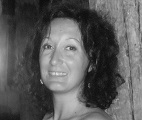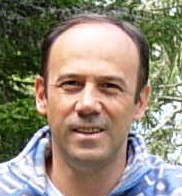Studying at the University of Verona
Here you can find information on the organisational aspects of the Programme, lecture timetables, learning activities and useful contact details for your time at the University, from enrolment to graduation.
Academic calendar
The academic calendar shows the deadlines and scheduled events that are relevant to students, teaching and technical-administrative staff of the University. Public holidays and University closures are also indicated. The academic year normally begins on 1 October each year and ends on 30 September of the following year.
Course calendar
The Academic Calendar sets out the degree programme lecture and exam timetables, as well as the relevant university closure dates..
| Period | From | To |
|---|---|---|
| First semester bachelor degree | Sep 16, 2019 | Jan 10, 2020 |
| Second semester bachelor degree | Feb 17, 2020 | Jun 5, 2020 |
| Session | From | To |
|---|---|---|
| First semester intermediate tests | Nov 4, 2019 | Nov 8, 2019 |
| Winter exam session | Jan 13, 2020 | Feb 14, 2020 |
| Second semester intermediate tests | Apr 15, 2020 | Apr 17, 2020 |
| Summer session exam | Jun 8, 2020 | Jul 10, 2020 |
| Autumn Session exams | Aug 24, 2020 | Sep 11, 2020 |
| Session | From | To |
|---|---|---|
| Autumn Session | Dec 2, 2019 | Dec 4, 2019 |
| Winter Session | Apr 7, 2020 | Apr 9, 2020 |
| Summer session | Sep 7, 2020 | Sep 9, 2020 |
Exam calendar
Exam dates and rounds are managed by the relevant Economics Teaching and Student Services Unit.
To view all the exam sessions available, please use the Exam dashboard on ESSE3.
If you forgot your login details or have problems logging in, please contact the relevant IT HelpDesk, or check the login details recovery web page.
Academic staff
Borello Giuliana
 giuliana.borello@univr.it
giuliana.borello@univr.it
 045 802 8493
045 802 8493
 roberto.fini@univr.it
roberto.fini@univr.it
 vania.licio@univr.it
vania.licio@univr.it
 martina.menon@univr.it
martina.menon@univr.it
 francesca.rossignoli@univr.it
francesca.rossignoli@univr.it
 0444 393941 (Ufficio Vicenza) 0458028261 (Ufficio Verona)
0444 393941 (Ufficio Vicenza) 0458028261 (Ufficio Verona)
Study Plan
The Study Plan includes all modules, teaching and learning activities that each student will need to undertake during their time at the University.
Please select your Study Plan based on your enrollment year.
1° Year
| Modules | Credits | TAF | SSD |
|---|
2° Year activated in the A.Y. 2020/2021
| Modules | Credits | TAF | SSD |
|---|
3° Year activated in the A.Y. 2021/2022
| Modules | Credits | TAF | SSD |
|---|
| Modules | Credits | TAF | SSD |
|---|
| Modules | Credits | TAF | SSD |
|---|
| Modules | Credits | TAF | SSD |
|---|
| Modules | Credits | TAF | SSD |
|---|
Legend | Type of training activity (TTA)
TAF (Type of Educational Activity) All courses and activities are classified into different types of educational activities, indicated by a letter.
Corporate Financing and Investment Decisions (2021/2022)
Teaching code
4S00409
Teacher
Coordinator
Credits
6
Language
Italian
Scientific Disciplinary Sector (SSD)
SECS-P/11 - FINANCIAL MARKETS AND INSTITUTIONS
Period
secondo semestre (lauree) dal Feb 21, 2022 al Jun 1, 2022.
Learning outcomes
The course aims to examine, in the perspective of non financial firms, the principles of corporate finance by deepening the characteristics of the net present value in the capital budgeting decisions, the choices of financial structure, the financing instruments in the short and medium-long term, the dividend policy, the payment instruments in international trade and the operations of hedging of financial risks (currency risk, interest rate risk and commodity risk). At the end of the lessons, students will be able to analyze, interpret and evaluate in a critical and autonomous way the firm’s decisions that have financial implications.
Program
The principles of corporate finance.
The determination of the relevant cash flows and the cost of capital in the net present value.
The project finance.
Working capital and trade credit policies.
The generation of value through divestment.
Models of sustainable growth.
The decisions of financial structure. The benefits and the costs of borrowing.
The Initial Public Offering (IPO).
The technical forms of medium and long-term financing.
The technical forms of short-term financing.
The dividend policy.
Payment instruments in international trade.
Introduction to Corporate Financial Risk Management.
The patent box.
Reference material
In addition to the textbook, Students must also prepare the material loaded on the elearning page of the course.
With the aim to a fruitful learning of the topics covered in the teaching it is appropriate that the Schoolgirls and Students have an adequate knowledge of the concepts taught in the course of “Financial markets and Institutions”.
Bibliography
Examination Methods
The exam is written and is directed to verify the knowledge of the topics in the program. It consists in three questions (open theoretical questions and exercises to be solved by providing a commentary to the obtained results), structured to ascertain whether the student is actually able to treat with awareness and critical sense the firms’ financial decisions. The duration of the test is variable from a minimum of one hour and a half to a maximum of two hours.
There will be a mid-term exam at which the Student may elect to participate. The mid-term exam will focus on the following topics:
- the principles of corporate finance;
- the determination of the relevant cash flows and the cost of capital in the net present value;
- the project finance;
- working capital and trade credit policies;
- the generation of value through divestment;
- models of sustainable growth;
- the decisions of financial structure. The benefits and the costs of borrowing.
The mid-term exam consists of a written with 3 questions (theoretical open questions and exercises). The duration of the test is variable from a minimum of one hour and a half to a maximum of two hours. To pass the mid-term test the minimum vote is 18/30.
Those who pass the mid-term exam will have to bear, in one of the appeals of the session of june-july 2022, a test which will focus on the second part of the course:
- the Initial Public Offering (IPO);
- the technical forms of medium and long-term financing;
- the technical forms of short-term financing;
- the dividend policy;
- payment instruments in international trade;
- introduction to Corporate Financial Risk Management;
- the project finance;
- the patent box.
Also the test on the second part of the program consists of a written with 3 questions (theoretical open questions and exercises) and has a duration variable from a minimum of one hour and a half to a maximum of two hours.
Compared to the final vote, the result obtained in the mid-term exam will have a weight equal to 50%. The final vote will be the average of the vote of the mid-term exam and that of the second test; this average will rounded upward if the decimal fraction is equal to 0.50. In order to pass the exam, the vote obtained in the test on the second part of the program must be at least 18/30.
The Student may refuse the vote of the mid-term exam. The notification must be made by email at lorenzo.faccincani@univr.it prior of the 6 pm of the day before the first appeal of the session of june-july 2022. In case of rejection of the vote of the mid-term test the Student must, of course, take the exam on the whole program.
The Student can not only refuse the vote obtained in the test on the second part of the program; this means that if, after passing the second test, the Student is not satisfied of the vote, he will have to refuse the result of the average of the two tests, losing then automatically the vote of the mid-term exam. The refusal of the vote must be notified at the email address lorenzo.faccincani@univr.it prior to the moment of the registration of the final vote.
The Student loses the vote of the mid-term exam if he does not sustain the second test in one of the appeals of the session of june-july 2022.
On e-learning platform, all the exam topics will be available immediately after the exam.
Finally, the exams are the same for attending and non-attending Students.
Type D and Type F activities
Nei piani didattici di ciascun Corso di studio è previsto l’obbligo di conseguire un certo numero di crediti formativi mediante attività a scelta (chiamate anche "di tipologia D e F").
Oltre che in insegnamenti previsti nei piani didattici di altri corsi di studio e in certificazioni linguistiche o informatiche secondo quanto specificato nei regolamenti di ciascun corso, tali attività possono consistere anche in iniziative extracurriculari di contenuto vario, quali ad esempio la partecipazione a un seminario o a un ciclo di seminari, la frequenza di laboratori didattici, lo svolgimento di project work, stage aggiuntivo, eccetera.
Come per ogni altra attività a scelta, è necessario che anche queste non costituiscano un duplicato di conoscenze e competenze già acquisite dallo studente.
Quelle elencate in questa pagina sono le iniziative extracurriculari che sono state approvate dal Consiglio della Scuola di Economia e Management e quindi consentono a chi vi partecipa l'acquisizione dei CFU specificati, alle condizioni riportate nelle pagine di dettaglio di ciascuna iniziativa.
Si ricorda in proposito che:
- tutte queste iniziative richiedono, per l'acquisizione dei relativi CFU, il superamento di una prova di verifica delle competenze acquisite, secondo le indicazioni contenute nella sezione "Modalità d'esame" della singola attività;
- lo studente è tenuto a inserire nel proprio piano degli studi l'attività prescelta e a iscriversi all'appello appositamente creato per la verbalizzazione, la cui data viene stabilita dal docente di riferimento e pubblicata nella sezione "Modalità d'esame" della singola attività.
ATTENZIONE: Per essere ammessi a sostenere una qualsiasi attività didattica, inlcuse quelle a scelta, è necessario essere iscritti all'anno di corso in cui essa viene offerta. Si raccomanda, pertanto, ai laureandi delle sessioni di dicembre e aprile di NON svolgere attività extracurriculari del nuovo anno accademico, cui loro non risultano iscritti, essendo tali sessioni di laurea con validità riferita all'anno accademico precedente. Quindi, per attività svolte in un anno accademico cui non si è iscritti, non si potrà dar luogo a riconoscimento di CFU.
| years | Modules | TAF | Teacher |
|---|---|---|---|
| 1° 2° 3° | Soft skills coaching days Vicenza | D |
Paola Signori
(Coordinator)
|
| years | Modules | TAF | Teacher | |
|---|---|---|---|---|
| 2° | Enactus Verona 2020 | D |
Paola Signori
(Coordinator)
|
|
| 1° 2° 3° | Parlare in pubblico e economic writing | D |
Martina Menon
(Coordinator)
|
|
| 1° 2° 3° | Samsung Innovation Camp | D |
Marco Minozzo
(Coordinator)
|
|
| 1° 2° 3° | Simulation and Implementation of Economic Policies | D |
Federico Perali
(Coordinator)
|
|
| years | Modules | TAF | Teacher |
|---|---|---|---|
| 1° 2° 3° | Simulation and Implementation of Economic Policies | D |
Federico Perali
(Coordinator)
|
| years | Modules | TAF | Teacher |
|---|---|---|---|
| 1° 2° 3° | Parlare in pubblico e economic writing | D |
Martina Menon
(Coordinator)
|
Career prospects
Module/Programme news
News for students
There you will find information, resources and services useful during your time at the University (Student’s exam record, your study plan on ESSE3, Distance Learning courses, university email account, office forms, administrative procedures, etc.). You can log into MyUnivr with your GIA login details: only in this way will you be able to receive notification of all the notices from your teachers and your secretariat via email and soon also via the Univr app.





























